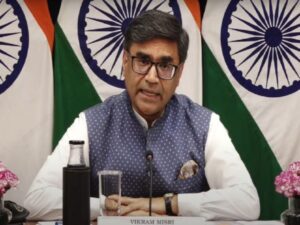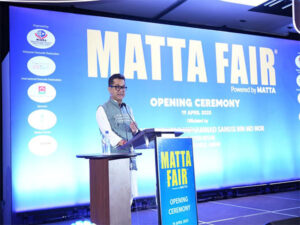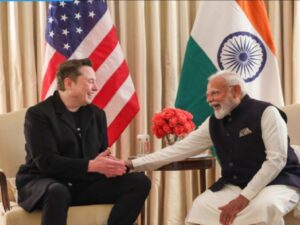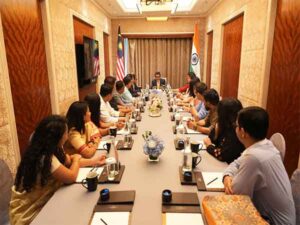Legitimate targets in PoK and Pakistan
Muzaffarabad [PoK], April 27 (ANI): A retired diplomat from Pakistan by the name of Abdul Basit has recently justified the attack on Indian soldiers in Rajouri near Bhimber Gali on April 20, 2023 as being legitimate. Basit said in a video message that the attack was ‘legitimate’ as it targeted Indian soldiers and not civilians.
Basit served as Pakistani High Commissioner in New Delhi. His statement proves that Pakistan-sponsored Jihadi terrorist organisations are seen as an extended arm of Pakistan’s malicious militant campaign against the people of Jammu and Kashmir.
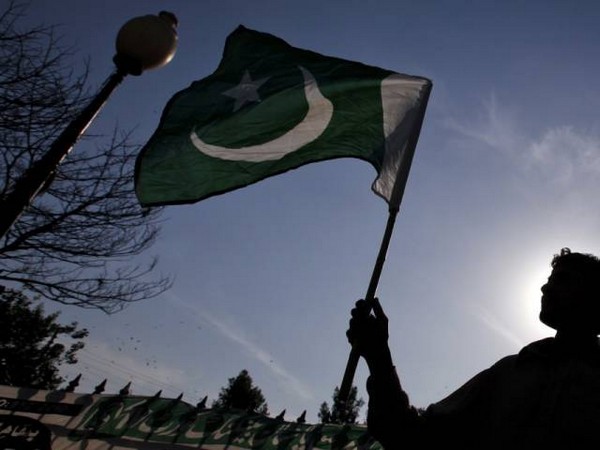
Basit is of the opinion that ‘although a number of people are referring to it (Rajouri attack) as terrorism however if it was conducted by a military of Mujahedeen (holy warriors) who have targeted a military entity, then it is a legitimate target.’
Basit continued to say that ‘it is a legitimate struggle and in this a legitimate target was hit and it is absolutely allowed by the international law.’
The international law that Basit is referring to is the United Nations general assembly resolution number 45/130 and resolution 1514 (XV) ”concerning the implementation of the Declaration on the Granting of Independence to Colonial Countries and Peoples,” which addresses the right of peoples to self-determination/struggle by all available means.
https://www.upsc.gov.in/FR-CSM-22-engl-230523.pdf
This resolution was adopted to support the independence movements in Africa, Asia and Latin American, continents which during the 1960 were rife with movements of self-determination against their European colonists.
Basit’s statement reveals two things. Firstly, how Pakistani diplomats are trained in the art of twisting UN resolutions and international treaties in order to manipulate international diplomatic as well as domestic public opinion.
Secondly, it proves beyond doubt that it is the Pakistan military establishment who is playing an instrumental role in the resurgence of isolated acts of terrorism in Jammu and Kashmir.
https://www.upsc.gov.in/FR-CSM-22-engl-230523.pdf
Let’s us examine the first point that I have raised. The struggles of national liberation against European colonialism that rocked Africa and Latin America were, in larger perspective, the result of the weakening of British and other European powers after the Second World War. The result was that two contending world powers emerged in the post-war period, namely USA and the Soviet Union who were vying for gaining spheres of influence in the above-mentioned continents.
That resulted in protracted bloody wars in Anglo, Rhodesia, Niger, Congo and other African countries and in Chile, Bolivia, Cuba, Nicaragua and various Latin American countries. Hence the emergence of Warsaw Pact and NATO military alliances.
https://www.upsc.gov.in/FR-CSM-22-engl-230523.pdf
Having said that, there were, no doubt struggles of anti-colonial nature and were accepted as legitimate national liberation struggles by the UN.
However, the terrorism that Pakistan has unleashed in Jammu and Kashmir, for seven decades, does not pass the criteria set by the UN to qualify as a ‘national liberation’ struggle. Why? Well it was Pakistan who conducted an unprovoked attack on the erstwhile state of Jammu and Kashmir on October 22, 1947.
https://www.upsc.gov.in/FR-CSM-22-engl-230523.pdf
The maharaja of Jammu and Kashmir Hari Singh decided to join the newly born Republic of India and signed an instrument of accession with the last governor general of India, Lord Mountbatten on October 26, 1947.
This instrument of accession was sign just as 560 other princely states of British India had signed to join India and was in accordance with the Indian Independence Act 1947 passed by the British parliament after the Act received Royal Assent on July 18, 1947.
https://www.upsc.gov.in/FR-CSM-22-engl-230523.pdf
Today, the only parts of the former state of Jammu and Kashmir that remain under the colonial occupation of Pakistan are known as so-called Azad Jammu and Kashmir and Gilgit Baltistan.
The UN resolutions have called Pakistan the aggressor, not India. On the contrary the UN have permitted India to keep a certain amount of military personal in Jammu and Kashmir to help maintain law and order and to prevent any military adventure that Pakistan might attempt.
https://www.upsc.gov.in/FR-CSM-22-engl-230523.pdf
This proves that the attacks on the sovereign territory of India in Jammu and Kashmir conducted by Pakistan and its jihadi proxies were not a legitimate act but continuation of the following three practices that constitute War Crimes: 1) War of aggression, 2) Crime against peace, and, 3) Crime against humanity. For more details regarding War Crimes my reader can consult the Nuremberg and Tokyo war crime tribunal reports.
It is therefore the General Headquarters of Pakistan army (GHQ) in Rawalpindi that is responsible for the planning, designating and the execution of criminal acts of terrorism in Jammu and Kashmir. Hence the ‘legitimate’ targets for attack should be GHQ and all the terrorist training camps and launch pads that are dedicated to the purpose of jihadi terrorism.
https://www.upsc.gov.in/FR-CSM-22-engl-230523.pdf
The people of Pakistan occupied Jammu and Kashmir and Gilgit-Baltistan are the one who are conducting a war of independence against Pakistan occupation and any act that contributes towards meeting that end is a legitimate act, and in accordance with the UN resolutions regarding movements for self-determination and National liberation.
Dr Amjad Ayub Mirza is an author and a human rights activist from Mirpur in PoJK. He currently lives in exile in the UK.

